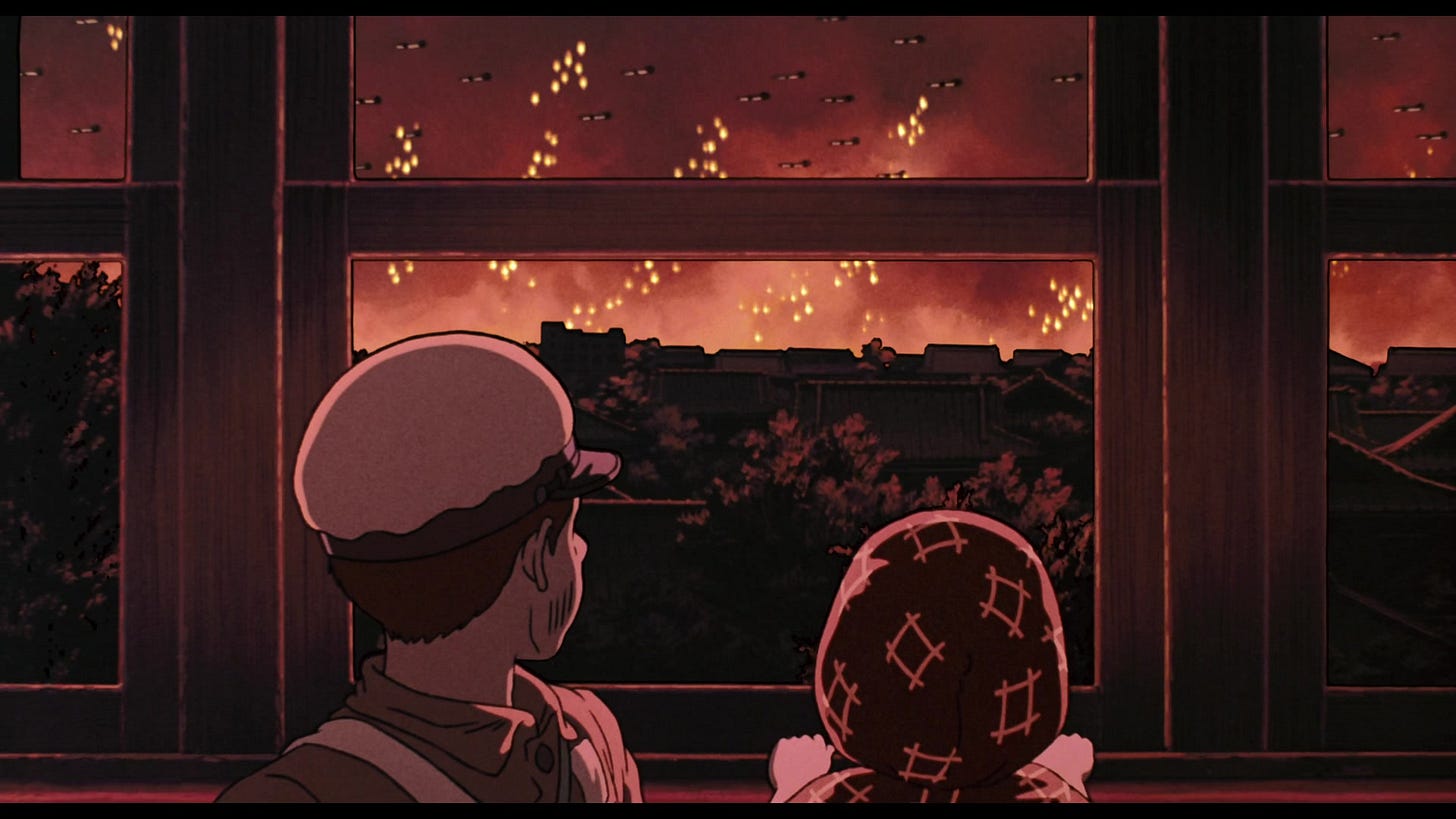Happy December, everyone. I won’t reflect too much on the past month; no one needs yet another substack reminding them that things are indeed bad out there. November is an in-between transition month for me — it doesn’t quite feel like fall anymore, but it isn’t winter yet, either. I feel caught in this season of transition all the time, so I guess it’s perhaps fitting that November is my birth month.
I turned 33 at the very end of the month, and somewhere in my 30s thus far I have accepted that I am indeed a Sagittarius, just an anxious one. But I am also impulsive and I fixate easily on new and exciting things, which is why I didn’t read much this month and haven’t read much this year in general in favor of literally any other shiny thing that’s captured my attention. It’s made these monthly roundups increasingly difficult, considering the entire newsletter’s purpose is to be about books. So, I guess, thanks for being here, even if it’s disappointing!
On Instagram, my brief post on November was inspired by all the yellows around me this past month, including the copy of Intermezzo I didn’t finish before the month’s end (though I have now finished it, so it’ll be in next month’s roundup), and the final colors of leaves before they die and fall. My favorite is the ginkgo tree, and all Thanksgiving, I was sad knowing the ones that line my street in DC would have completed their synchronized fall like a curtain by the time I went home.
Other color-inspired joys: the banana milk I can’t stop drinking, its bright yellow carton, the Korean pronunciation of “banana” I get to say to myself and delight in every time I drink one, and the way November golden hour is truly golden, everything yellow before dark.
what I read
Madwoman by Chelsea Bieker
Madwoman immediately starts with mystery, presenting us with a character we’re meant to be skeptical of. Clove, white wellness mama extraordinaire to two young children who you can picture being dragged to Erehwon for the Hailey Bieber smoothie, is not the picture of perfection she presents. She has created this live-laugh-love persona to cover up her dark past as a victim of her father’s domestic abuse, going so far as to live by a different name, unbeknownst to even her husband.
What the reader does not know, though, is why she’s changed her name or other relevant details of her past. The action begins when she receives a letter from a women’s prison a state away. The novel then switches back and forth between present day, as Clove tries to keep her act safe, and various points in her childhood that explain her actions and psyche.
I picked this up in the Toronto airport during a layover on the way to Tokyo in December because Canada is lucky to get paperback new releases from time to time, and so often when I’m looking at a new book, I do the “I’ll wait for it to come out in paperback” thing. Not for Madwoman!
But I also picked it up because I’d heard several people on Instagram describe it as a literary thriller, which feels like a good mediator between meandering plotless literary fiction and strictly genre fiction thrillers. The former, I usually love; the latter I grow frustrated with. The pacing of thrillers takes me out of the story itself — they are often so slow until the last 50 pages or so, and the action happens so quickly that I feel whiplash by the end.
The action does increase significantly toward the end, inevitably. But it also captured my attention the whole way through, too. There are enough twists and turns that, while not completely surprising, keep you engaged and curious as to what comes next.
I want to chat about this book with someone smarter than me to help me sort out how I feel about a thriller exploring such an intensely heavy topic. In some ways, I feel like an over-the-top, perhaps even unrealistic thriller element distracts the reader from an issue that deserves our full attention; on the other hand, an engaging plot keeps the message from feeling too heavy-handed or narrow. There’s enough space to find your own takeaways, but not so much room for interpretation that it’s possible to miss the point. The author handles the subject with care.
I would encourage anyone who’s interested in picking this one up to read content warnings first or seek out review from folks who have personal experiences with the subject matter. It is incredibly heavy, and again, while important, requires the reader to take care of themself too.
Human Acts by Han Kang
Though I haven’t made an official list yet, I’m declaring Human Acts one of my favorites this year.
From Goodreads: “Amid a violent student uprising in South Korea, a young boy named Dong-ho is shockingly killed. The story of this tragic episode unfolds in a sequence of interconnected chapters as the victims and the bereaved encounter suppression, denial, and the echoing agony of the massacre. From Dong-ho’s best friend who meets his own fateful end; to an editor struggling against censorship; to a prisoner and a factory worker, each suffering from traumatic memories; and to Dong-ho's own grief-stricken mother; and through their collective heartbreak and acts of hope is the tale of a brutalized people in search of a voice.”
The most heartbreaking literature (and art) to me is that which presents its devastation up front not as tragedy porn for the reader but simply because there is no point in disguise. A slow unraveling would cheapen the whole thing. Human Acts has no build-up; we are thrown into it as readers, with no one holding our hands to walk us through history until this point1.
It’s clear from start to finish that Han Kang treated this with such respect, and I think to have inserted more drama for the readers’ entertainment would have undermined the care she took in presenting one story amongst hundreds, both told and untold.
I think it’s particularly relevant at this moment to be reminded of the evil that we are capable of in our desperate grab at power and the human cost of that striving. It might feel like we’re removed from something like the Gwangju Uprising or Korea’s dictatorship, but this was not even a lifetime ago, and most of us in the Western world look at South Korea and can hardly imagine a dictatorship only 40-something years ago.
But then, early in December (forgive me for getting my Consumption Diary months mixed up), as we are all aware, South Korean President Yoon Suk Yeol declared martial law — the first time since that very dictatorship. I immediately thought of Human Acts (and Grave of the Fireflies, which I mention below), its warning, and have kept it in my mind as the protests in Seoul and messy government fighting continue. Literature never exists in a vacuum, even historical fiction. What was once relevant is always relevant.
what I watched
I watched four K-dramas in November: Love to Hate You, One Spring Night, Mr. Plankton (emotionally damaging, I actually can’t think too hard about it), and Vincenzo (finally).
As for movies, this was an incredible month for me — I’m not even sure I can pick a favorite. A frontrunner is the newly released Anora, which was so good, Mikey Madison is such a star, I feel confused that I like a white man in Sean Baker, and please for the love of god don’t watch this movie with your parents. Before Sunrise (1995) is also a contender for fav of the month, and I do not need you to shame me for putting it off for so long and yes I will watch the other two movies!
The 2000 version of Gladiator was watched as homework for Gladiator II (GLADIIATOR, the opening credits informed me) and I’m glad I did it because I was not aware that the sequel is a true sequel. However, I was just there to see if Paul Mescal’s sad boy aesthetic translated well into hot tortured himbo.
Grave of the Fireflies (1988) I went to see at the Alamo because they were doing a special showing and I have never been able to find this streaming, hindering my Ghibli completion project2. I knew it was going to be sad and dark, but it was actually brutal. And, horrifyingly, timely.
I also enjoyed Gosford Park (2001), though it was a bit slower moving and I was distracted by all the accents the entire time. How exciting to see OG Dumbledore and Maggie Smith as villain-ish types, though.
And then, fulfilling my duties as a white girl, I embarked upon the journey of 2024 holiday movies despite insisting I was going to wait until December. I managed to suffer through Hot Frosty, The Merry Gentlemen, Our Little Secret, and Meet Me Next Christmas. I really love that Netflix is building a little Lindsay Lohan cinematic universe, but I could have done without the addition of Chad Michael Murray being a horrible dancer.
Fun trivia fact of the month:
Ginkgo trees are considered living fossils because they are the last living species of their order and have remained relatively unchanged in the hundreds of millions of years they’ve existed. If that weren’t resilient enough, you have also probably noticed, if you are lucky enough to live near ginkgoes, that they are fairly resistant to wind, rain, and snow as well.
The term “living fossil” is contested amongst scientists, but I am not one of those, so I wholeheartedly support the concept. For the romanticism! My other favorite living fossil, and maybe yours too, is the platypus.
Before you go: Find me on Instagram, Goodreads, StoryGraph, or Letterboxd to keep up with my oversharing and obsessive tracking habits in real time.
However, I highly recommend doing some basic research on the Gwangju Uprising and political turmoil that led up to it, either before or after reading.
Grave of the Fireflies is now, as of September, streaming at least in the U.S. on Netflix, meaning I could have cried in the privacy of my own home but instead had to do it in the quietest, bleakest theater I’ve ever sat in.








Came for the book recs, stayed for the ginkgo lore
Oh I'm very excited for you to watch Before Sunset now. I wish I could watch that one again for the first time <3